Souls live on in perpetual echoes.
GEORGE ELIOTThe troublesome ones in a family are usually either the wits or the idiots.
More George Eliot Quotes
-





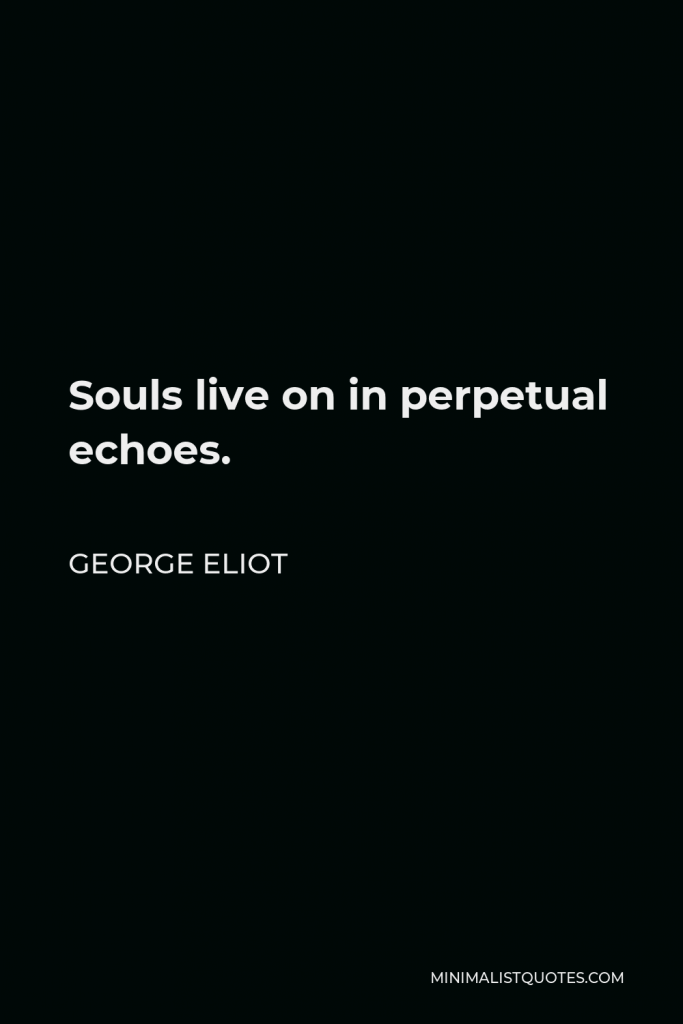

-





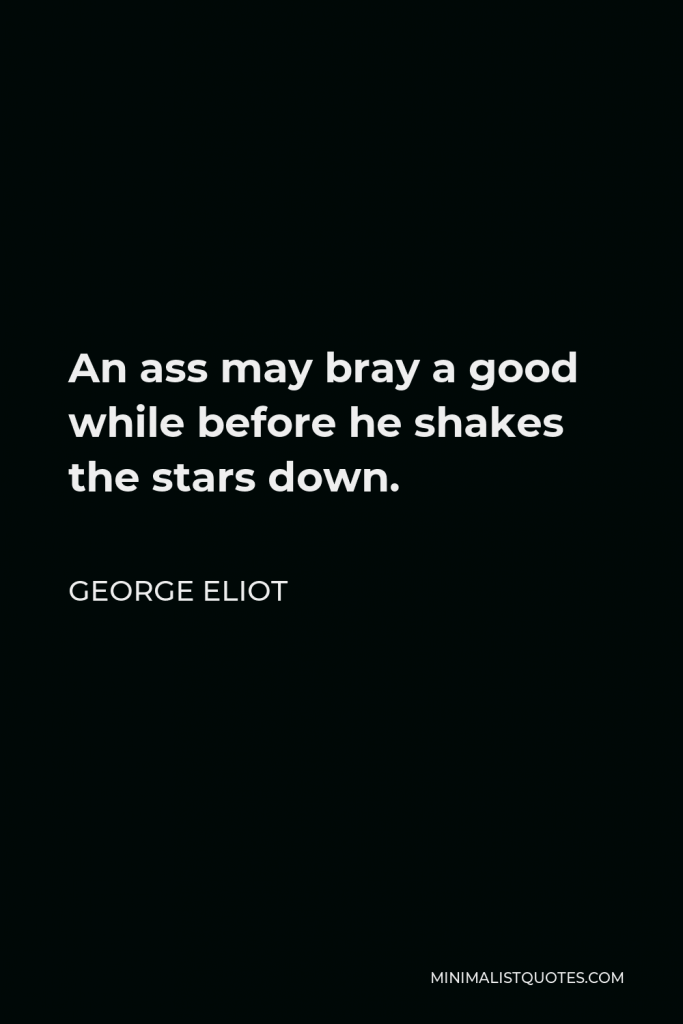

An ass may bray a good while before he shakes the stars down.
GEORGE ELIOT -







She was no longer wrestling with the grief, but could sit down with it as a lasting companion and make it a sharer in her thoughts.
GEORGE ELIOT -







Love has a way of cheating itself consciously, like a child who plays at solitary hide-and-seek; it is pleased with assurances that it all the while disbelieves.
GEORGE ELIOT -







The best travel is that which one can take by one’s own fireside. In memory or imagination.
GEORGE ELIOT -





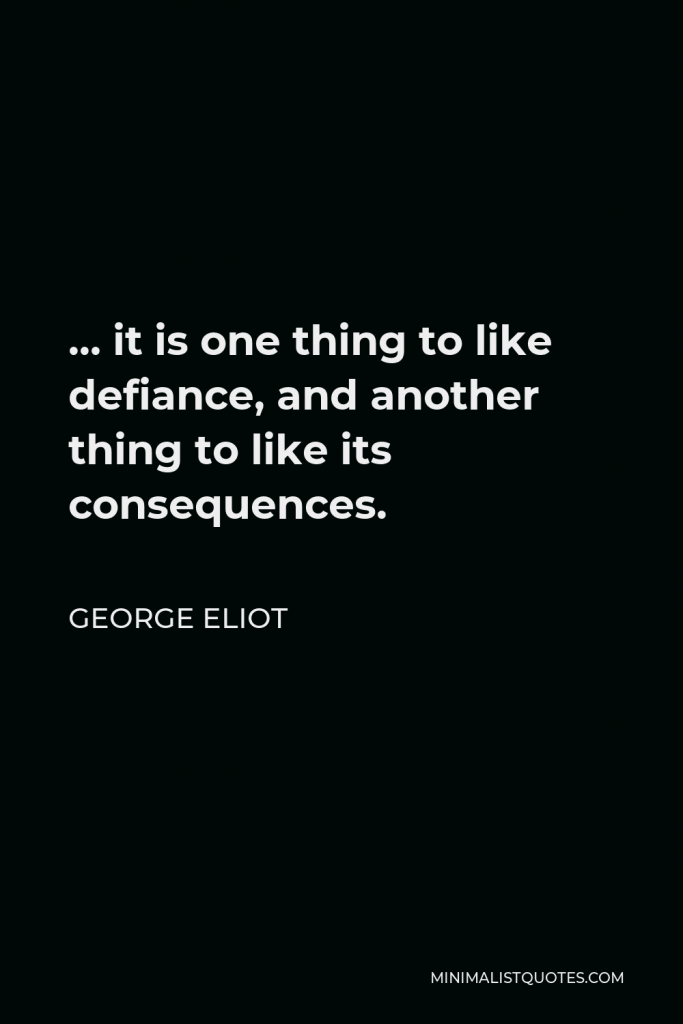

… it is one thing to like defiance, and another thing to like its consequences.
GEORGE ELIOT -







The troublesome ones in a family are usually either the wits or the idiots.
GEORGE ELIOT -






Vague memories hang about the mind like cobwebs.
GEORGE ELIOT -





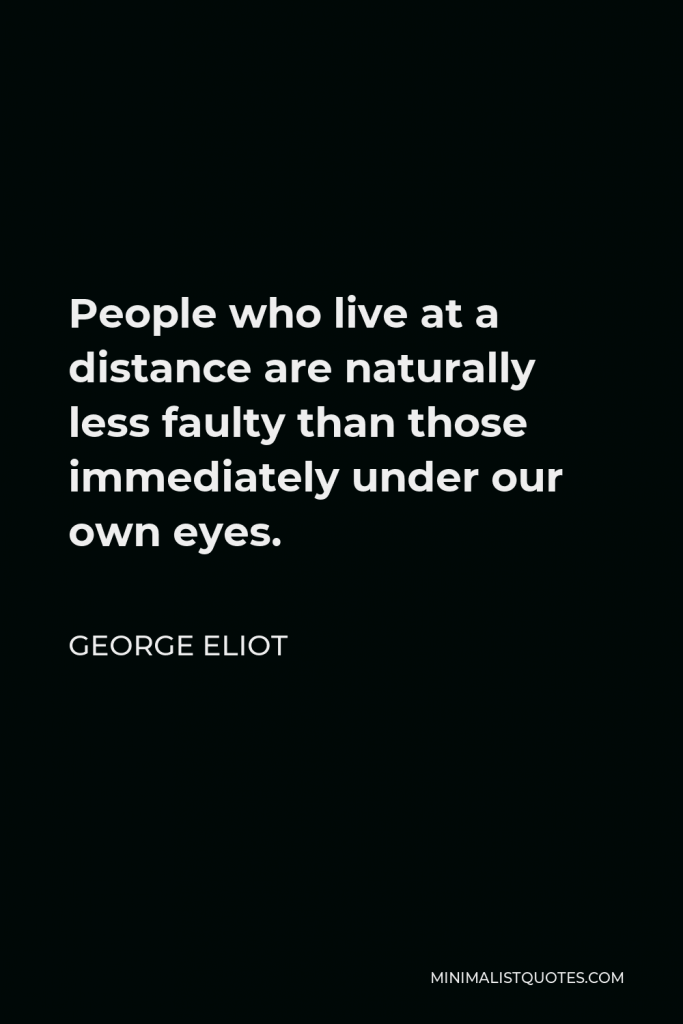

People who live at a distance are naturally less faulty than those immediately under our own eyes.
GEORGE ELIOT -






Your trouble’s easy borne when everybody gives it a lift for you.
GEORGE ELIOT -







The finest language is mostly made up of simple unimposing words.
GEORGE ELIOT -






I like not only to be loved, but also to be told I am loved.
GEORGE ELIOT -






The important work of moving the world forward does not wait to be done by perfect men.
GEORGE ELIOT -





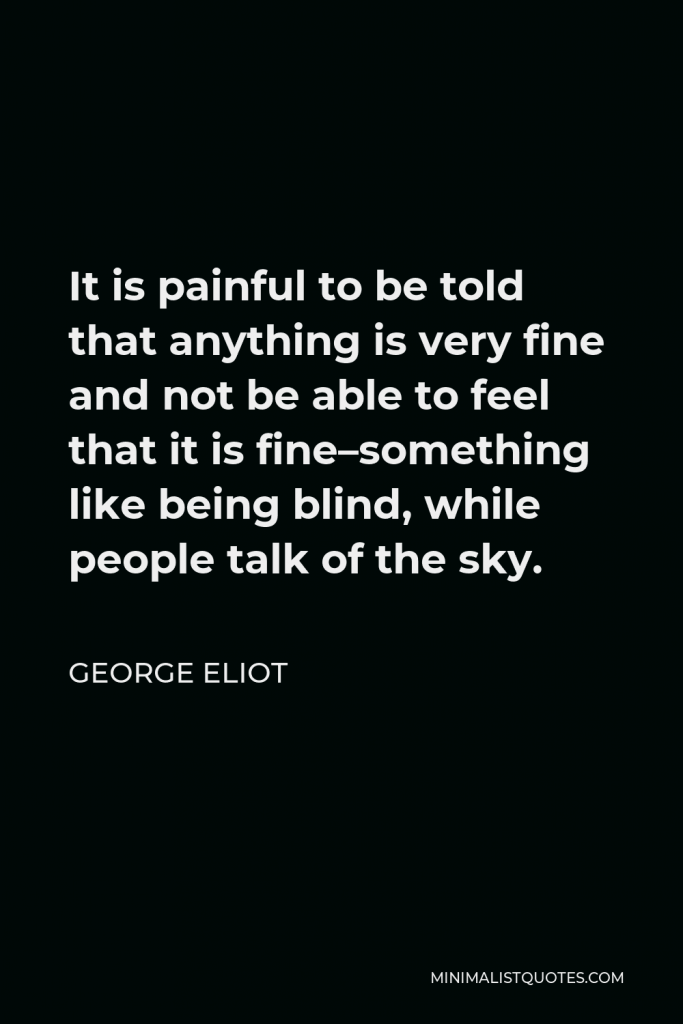

It is painful to be told that anything is very fine and not be able to feel that it is fine–something like being blind, while people talk of the sky.
GEORGE ELIOT -






Decide on what you think is right, and stick to it.
GEORGE ELIOT -







What do we live for, if not to make life less difficult for each other?
GEORGE ELIOT







